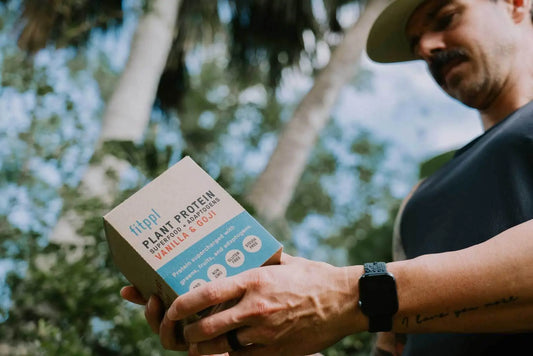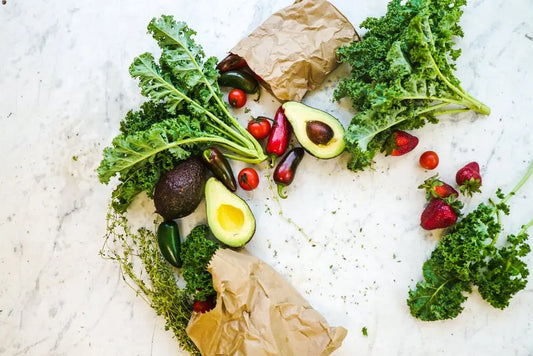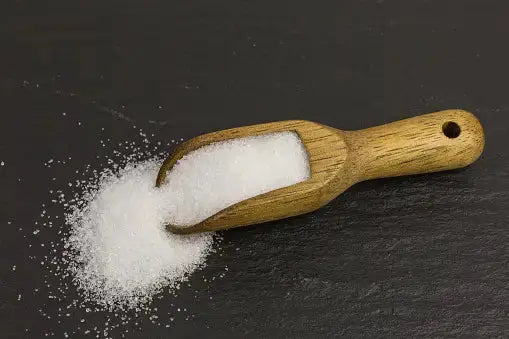What is Lactose and Why Avoid It?

Cognitive GI Connection: Why lactose free protein powder is the better option
Most of us now study the label of the products we are buying, there are just too many shady things hiding in them. We have all been there, standing in the grocery aisles looking up ingredients, trying to understand what these scientific and chemical translations truly mean. How many times have we also grabbed something in a rush because of convenience or a sale? Or maybe we have been using the same product for years and a little stubborn to change. There is one ingredient you won’t see on the label, lactose.
There is a lot of fluff in products that we should attempt to avoid if we want to support our mind, body and GI connection. This cognitive GI connection has been long studied in ancient practices such as Ayurveda between “mood and food” that leads us to a healthier paradigm to understand what we adapt in our lifestyles and the effects of what we consume. So where does lactose free protein powder fall into this? We’ll explain…
What is Lactose and how does it affect our body?
Lactose is the sugar found in dairy products.
When you consumes a product or food containing lactose, an enzyme in the small intestine known as lactase is broken down into a simple form of sugar called glucose. These simple sugars are then easily absorbed into the bloodstream and turned into available energy that is then used for our bodies as a fuel source. Sounds good right? But what if we have a lactose intolerance or have chosen a plant based diet? Well in moderate consumption, there are other beneficial sugars found in honey, fruits, vegetables and herbs. Sugars like naturally occurring fructose are great alternatives to boost energy quickly, a must for long workouts such as hiking, running, cardio and circuit training. Fructose is naturally presented in many fruits and vegetables, which people can include in a a balanced moderate diet.
Natural and Alternative Sources of Plant Energy Can Be Found In These Powerhouse Botanicals:
Apples, Asparagus, Pears, Figs, Onions, Plant Based Syrups like Agave Or Molasses, Raw Pressed Juices & Even Herbals Like Licorice Root
Whey protein supplements are one of the most commonly used protein supplements in the world. Fads, trends, marketing and flashy logos can easily distract us from what’s behind the label. Most of these products tend to be cheaper, easier to mass produce and available at most grocery stores and vitamin shops. The issue with whey supplements is that almost all of them contain unnecessary amounts of lactose. In short, if you want lactose free protein powder, you have to find a whey protein alternative. There are plenty of plant protein choices available now. So what’s the problem with lactose?
Individuals with an intolerance to lactose don’t produce enough of the lactase enzyme to break down and filter out lactose.
Instead, undigested lactose can sit in the gastric intestinal organs as bacteria breaks it down in time. Even without an intolerance, lactose is also responsible for creating uncomfortable gastric difficulties and bowel issues in a large portion of our human population. Lactose free milk and lactose free whey protein supplements do exist, but many of these alternatives usually contain various additives to enhance the flavor and texture of the product.
Examples of these additives include:
Sugars
In order to maintain the sweetness of milk and whey protein supplements, many companies add in sucralose or stevia. These sweeteners are usually highly processed and have undergone manipulation in order to provide the same level of sweetness found with lactose.
Preservatives
Unhealthy food additives and manipulated substances to preserve the life of shelf stable products, commonly found in unrefrigerated liquids and canned food items. Lactose free protein powder will have less preservatives.
Emulsifiers
Various sources of surface agent ingredients like lecithin, carrageenan are added for product texture that can ultimately damage our intestinal flora and probiotic health.
The prevalence of lactose intolerance continues to grow in our society, making the need to avoid lactose all the more common.
Even in the non-lactose intolerant population, the over consumption of lactose can bring inflammation in our bowels and inhibit our natural gut flora causing the gastrointestinal tract to become sluggish, leading to heavy bloating, constipation and other bowel habit disturbances. Natural enzymes, such as the protease papain, found in papaya and pineapple can be beneficial in promoting the breakdown of sugars and protein which stimulates good bacteria in supporting natural elimination of waste making it easier and kind for your liver, pancreas and kidneys to not do all the work.
In today’s world there are a ton of plant based milks and you can even make your own. These lactose free alternatives are free from nasty additives and preservatives, and can easily be made at home. Just as physical training is vital for developmental growth, nutrition is just as important for health overall. Using lactose free protein powder promotes a healthy gut and keeps the dirty preservatives out. Knowing what goes in our body helps us remain diligent and happy for achieving better health.
Alternative Milk Tip:
Hemp, cashew, and almond milk tend to be the best alternatives in taste, texture for moderate consumption in daily healthy living. Making your own is also a fun wellness activity!
How to make almond milk:
To make almond milk simply add a handful or two of raw almonds to a high speed blender with enough filtered water to cover by ½ - 1 inch. Blend on high for 3-5 minutes and then strain. If you want to sweeten the almond milk add in 1-2 medjool dates prior to blending.










